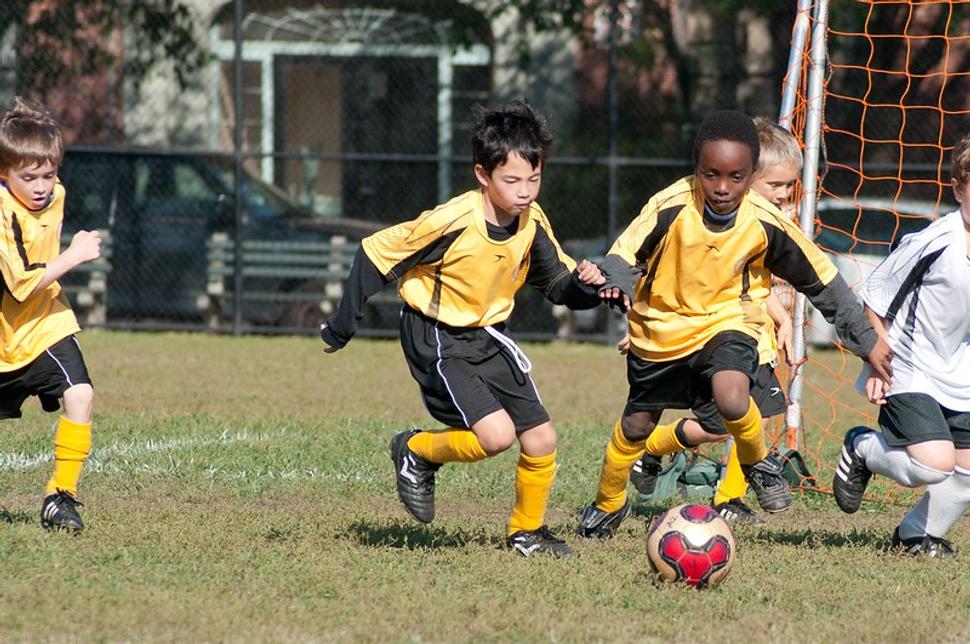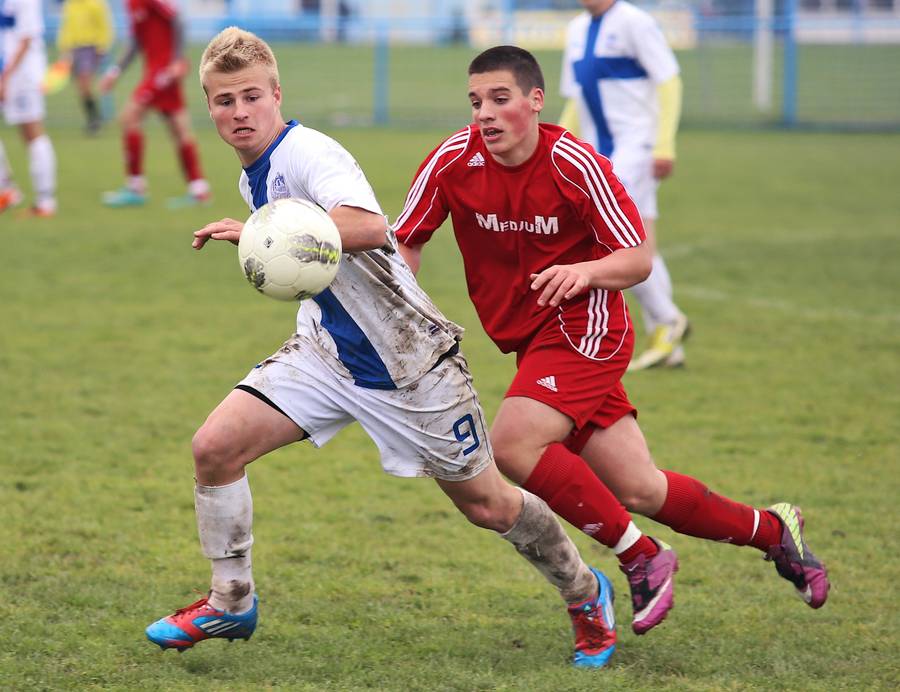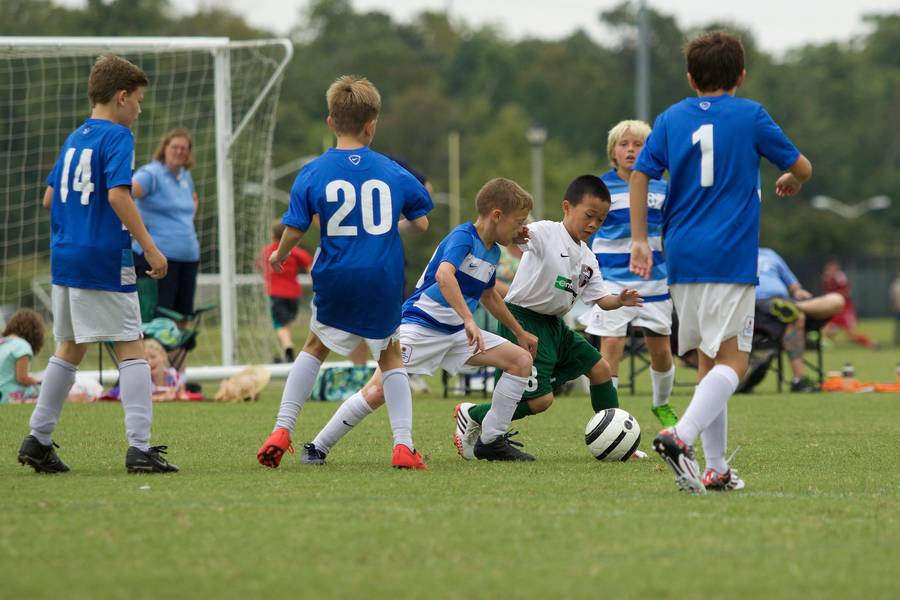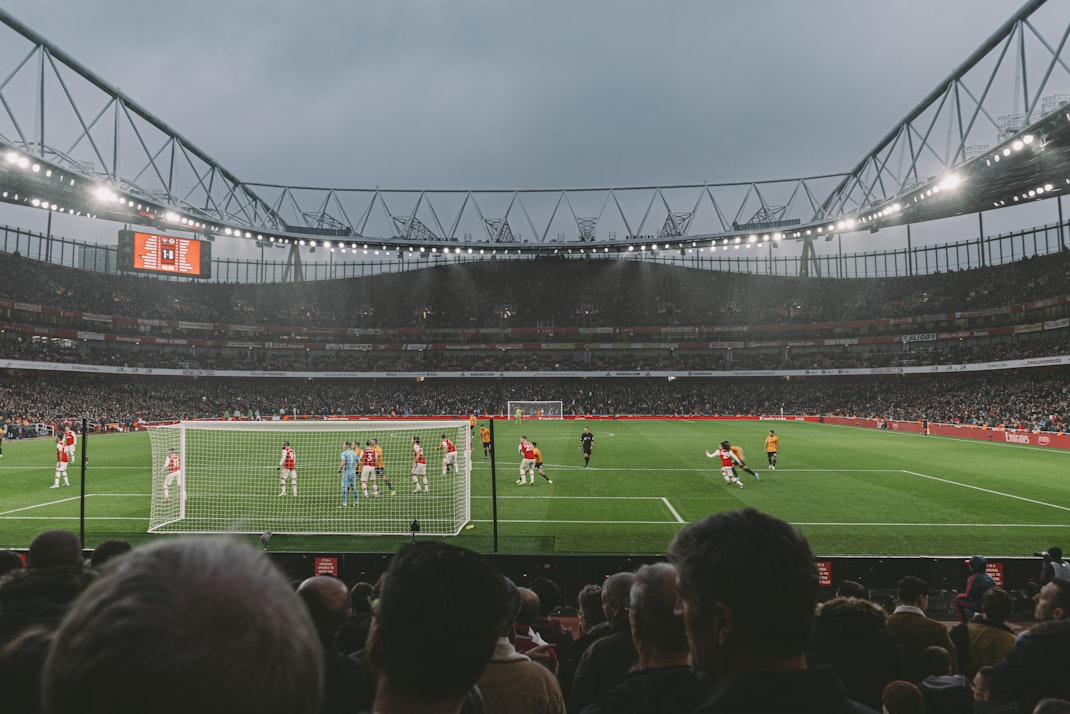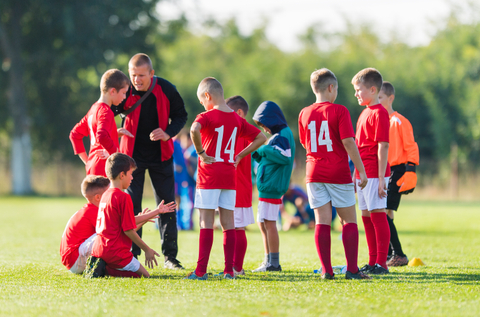
The local Grassroots football forum was alive with debate recently after an Under 9’s result from a game that finished 39-0.
Opinions broadly fell into one of two camps. The majority felt that there was no way this should have been allowed to happen and that there was a responsibility on the coach of the stronger team to have prevented this.
It’s fair to say too there were a number of voices offering an alternative view that the result of the game was fair enough and simply the natural effect of one team being much stronger than the other.
Is it right that junior football is somehow regulated to avoid very one sided outcomes? Or should a more laissez faire approach be adopted as the Darwinian maxim of survival of the fittest actually leads to improvements for all?
Personally, I don’t believe that winning at the younger age groups is the most important indicator of success. Playing well, developing skills, and staying in love with the game are far more important for me.
Competitive football in England doesn’t start until the U11 age group, at least in terms of reporting of results, but you wouldn’t know that by watching the coaches and parents of some kids much younger than that at the weekend.
It’s a cultural issue, and I don’t believe it’s healthy for the game.
Even at elite Junior Football level, the results of the games matter little to those who hold player development as their focus. Crewe Alexandra who have bounced around Leagues 1 and 2 for a generation have always punched well above their weight for producing highly talented players that have been transferred for millions of pounds and gone on to star at international level.
A few years ago, I happened to witness one of their junior teams narrowly lose a league game to Manchester City thanks to a last minute goal. This triggered mass celebrations for the travelling Man City coaching staff and players. A quizzical Crewe coach asked why they were so pleased and was informed that the result meant that City had won the league. The Crewe coach responded by saying he didn’t know which league they were playing in or where they were placed in it because it had no relevance to them.
You might think there is a negligence it not caring about things like winning, overall results or leagues. Alternatively you may agree with me that by not caring about those things you open up more opportunities for player development.
If short term success is your focus there are many ways a coach can give themselves an improved chance of winning Junior Football matches, and in my opinion many of those are hollow wins at the expense of long-term player development.
I believe we should be encouraging kids to get as many touches of the ball as possible, and supporting them when they make mistakes.
Mistakes are a necessary part of learning, and how we respond to those mistakes as a coach will be a huge factor in deciding what type of players we produce. If you want cautious, predictable players who play consistently ‘safe’ than tell them their every move and criticise errors. I think we need to be giving the Junior Players of today the best chance of developing the skills that they will need when they are older, when winning will become infinitely more important than picking up a collection of plastic medals before they reach double digits in age.
One of the key reasons for the introduction of playing the 5v5, 7v7 and 9v9 football format in the lead up to the full 11v11 game is to give each player more touches of the ball. The main reason for implementing a retreat line (requiring the opposing players to retreat into their own half at goal kicks) is to encourage passing through the thirds. Yet direct play and long goal-kicks still endure because they are ways to win in the short-term. However, if players crash it long to be safe, we are not supporting players with the skills they will require in their futures.
I'm well aware that some people think the above is fair, logical and reasonable and many football parents will subscribe to it. However, some would say there is an equally valid argument the other way, and that all sport and football in particular is fundamentally about competition.
In fact, that’s pretty much the defining characteristic of sport. If you’re not trying to beat someone then it loses all meaning and purpose. Plenty of other Junior Football teams will be playing to win so why do yourselves a disservice and not go flat out in every game?
If you don't win the games you can, by as much as you can, then how does that benefit the confidence and self-esteem of your own players?
Winning by a massive margin may help young players how to win with grace. Losing by a massive margin may help young players become more determined and focussed. Are these not reasons in themselves for the game to simply be played out naturally?
I’ve also been in a situation as a Junior Football coach where I’ve had a full squad of 16 players turn up for an 11 a side fixture and the opposition have only had 9 players. My first instinct was to offer to match them and play 9 Vs 9 but then it dawned on me that I’d have 7 subs and there would be 2 players who were missing out on starting a game because the other team had turned up short handed which didn’t seem very fair.
We could have ‘loaned’ players to them for the game and played 11 Vs 11 but, quite apart from this being against the league rules, I wasn’t exactly inundated with volunteers to switch sides or even anyone who was willing to consider doing it. In the end we played 11 Vs 9 and, predictably, it was a one sided game with a big win and was a hollow experience in many ways despite me gradually reducing our numbers throughout the game to match them.
Ironically, my experience in Junior Football has been that those teams that focus more on player development and support over results tend to retain their player numbers much better than those that are purely results focussed. Equally shared game time with a focus on enjoyment and self improvement usually helps to guard against mid-season departures and the chances of turning up with 9 players in the first place.
Part of me thinks that very one-sided Junior Football games should be stopped and the teams completely mixed together although I recognise this is impractical, likely unpopular and never going to happen.
I welcome some of the more recent innovations at junior age groups enabling teams to add players when they’re a long way behind in the game. However, going back to the 39-0 scoreline it’s fair to say, that nobody benefitted from their experience, nobody on the losing side enjoyed their experience and I’d venture neither did anyone on the winning side if they were honest with themselves.
In circumstances like that it’s hard to argue that anyone is taking anything positive away and actually over time all sides are being damaged.
I think Mourinho summed it up best when he said, “In England you teach your kids how to win. In Spain and Portugal they teach their kids how to play”.



